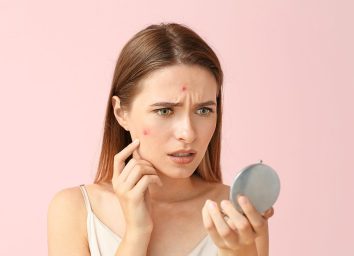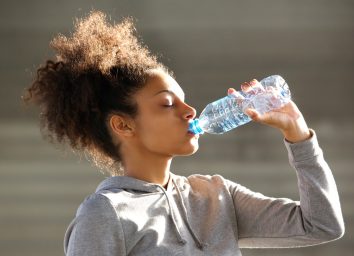6 Things Your Skin Is Telling You About Your Diet

Everyone has those days, the ones when you look in the mirror and just don't love what you see. Maybe you've got breakouts reminiscent of high school, your chronic dryness keeps flaring up, or your under eyes are determined to tell the world you didn't rest enough. Whatever your skin issue is, there are ways to fix it that go beyond dermatologist appointments and moisturizer applications.
In fact, revamping your skin can be easier than all that. Sometimes all you have to do to say goodbye to your skin hang-ups is make simple dietary changes. That's why we talked to Rosemarie Ingleton, MD, NYC Dermatologist, and Medical Director of Ingleton Dermatology. And for more healthy habits you should try out, check out the 21 Best Healthy Cooking Hacks of All Time.
Fine Lines and Wrinkles
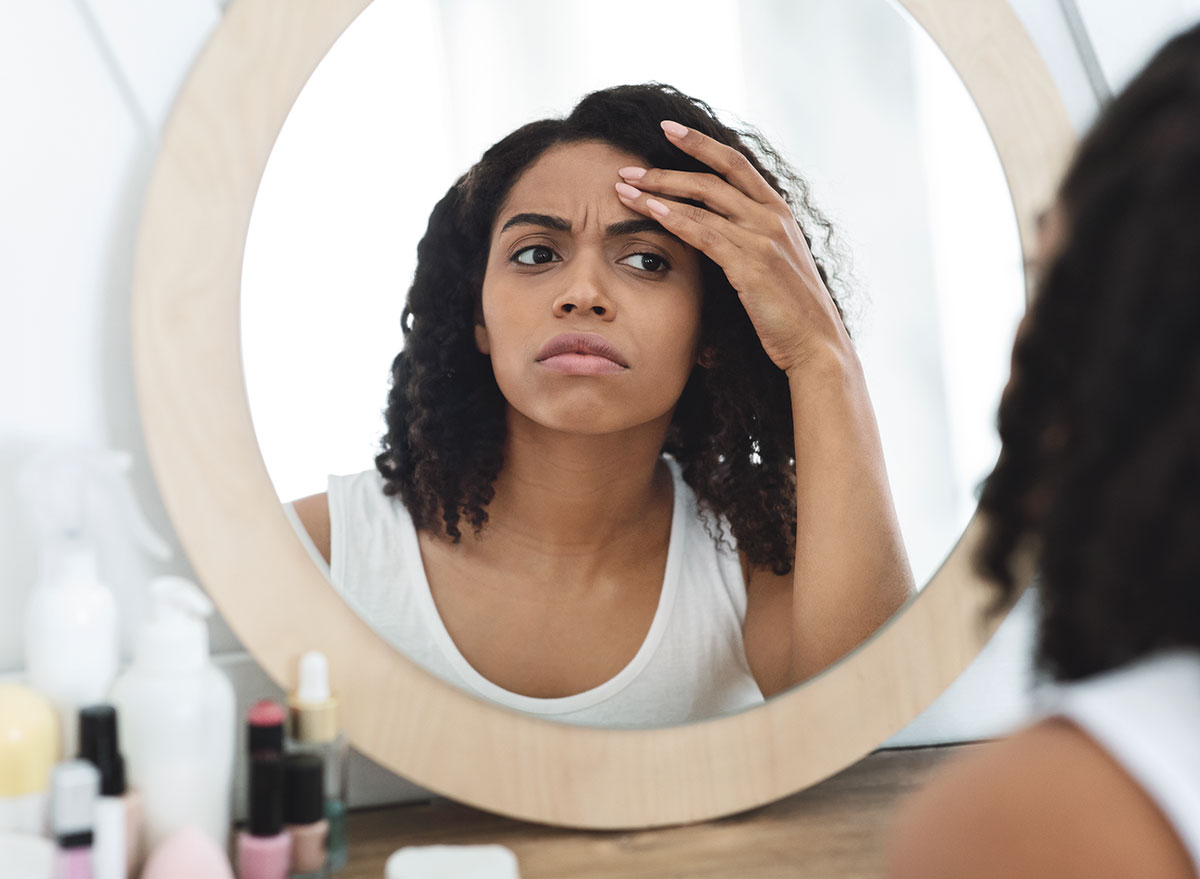
This may signify your diet is: Too high in alcohol and sugar
When wrinkles strike, keep your liquor cabinet shut tight. That homemade cocktail you enjoyed with dinner or the glass of wine you sipped before bed could be to blame for your wrinkled skin. As a natural diuretic, alcohol makes you more dehydrated the more you drink, sucking away at your skin's natural moisture. This can actually deepen the lines on your face and make them stand out, which is why alcohol made it onto our list of 23 Foods That Make You Look Older Than You Are.
If your wrinkles are exclusively on your forehead, sugar might be the culprit. According to face mapping, which is a concept that believes parts of your face are linked to certain organs, your forehead is linked to your digestive tract. So if there's too much of the sweet stuff disrupting the bacteria in your gut, it could lead to lines up there.
Breakouts
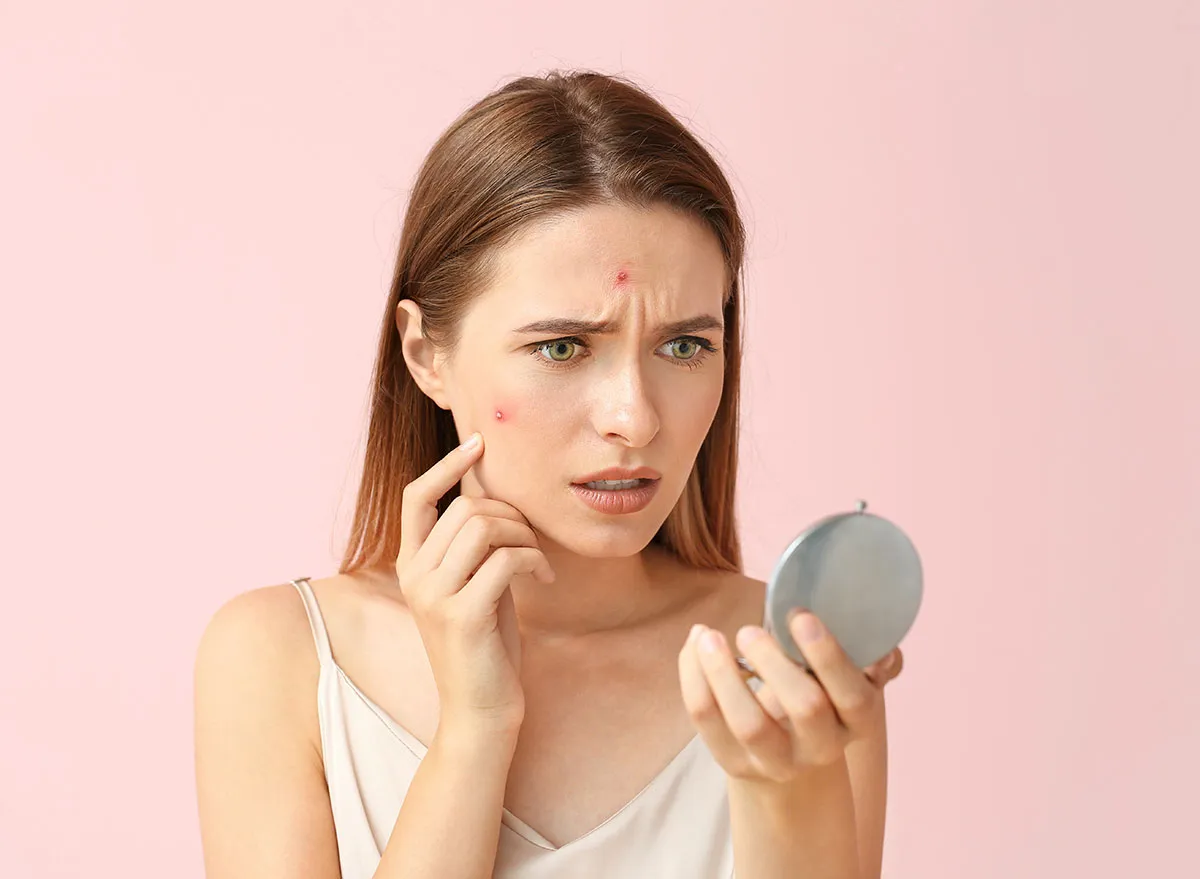
This may signify your diet is: Too high in high-glycemic foods
Battling breakouts? Blame your diet. If loaves of white bread are one of your grocery list staples, it's no wonder your skin hasn't cleared up. The high-glycemic index of your morning bagel and midday sandwich impact levels of blood sugar and insulin, so switch to whole grains instead. According to a study on 15-25-year-old males in the Journal of the Academy of Nutrition and Dietetics, making lower-glycemic choices like that can lead to less acne.
Looking for more tips? Sign up for our newsletter to get daily recipes and food news in your inbox!
Dark Circles
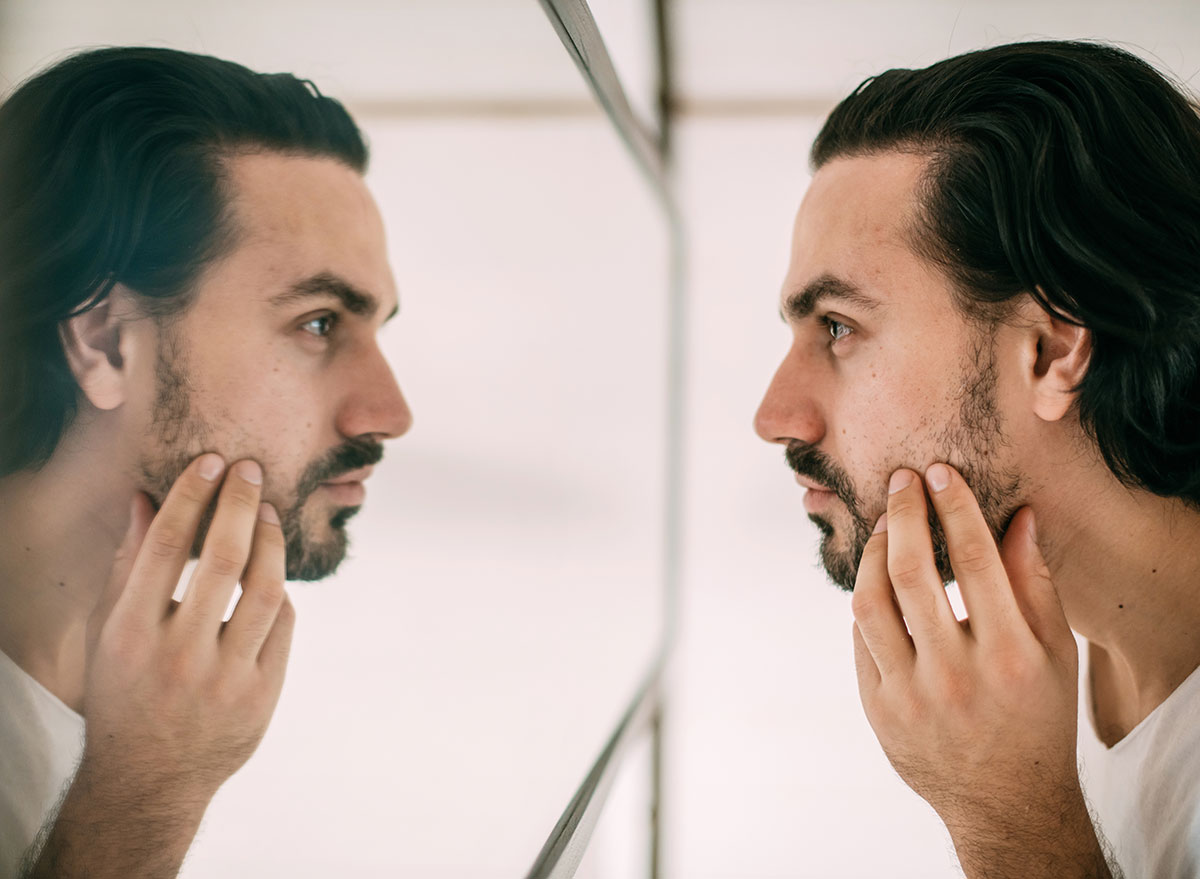
This may signify your diet is: Missing sufficient water intake
The key to blasting those under-eye bags isn't just a long night's rest. The dark circles you're dealing with may have more to do with water retention, which means you haven't been drinking enough H2O. Don't forget that the state of your skin doesn't just have to do with the food you're swallowing, but the beverages you're chugging as well. Be sure to drink at least the recommended 64 ounces a day and hydrate those pesky purple hues away.
This quick fix might help in more ways than one by cutting down your milk intake. Face mapping says that drinking dairy can lead to inflammation all over your body, even beneath your eyes. And since 65% of people have some form of lactose intolerance, this might be the case for you.
Dry Skin
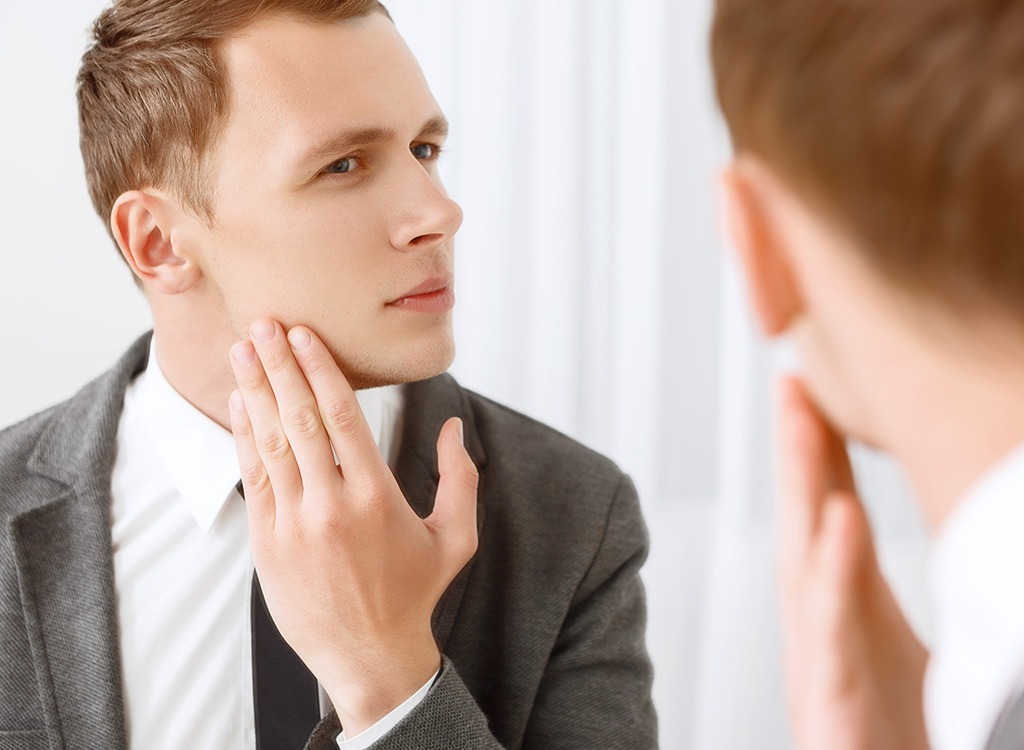
This may signify your diet is: Too high in sodium
As if you needed another reason to cut back on your sodium intake, it could be the culprit that's drying out your skin. When there's too much salt in your diet, your body overcompensates for this by holding onto water, which doesn't just lead to puffy cheeks, but cracked, dehydrated skin. Even if the dryness you suffer from is year-round, find more quick fixes on our list of 22 Naturally Moisturizing Foods to Eat When You Have Dry Skin.
Oily Skin
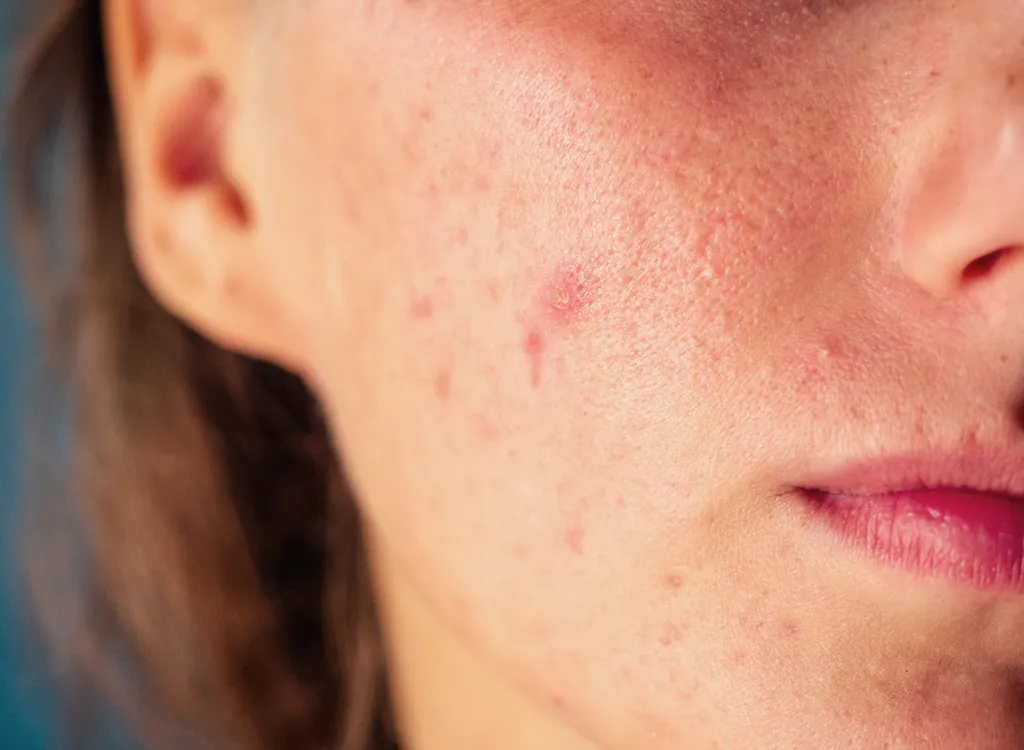
This may signify your diet is: Too high in dairy
If your oil has gone into overdrive and you find yourself dealing with daily dampness, you might be drinking too much dairy. According to researchers from the American Academy of Nutrition, boys drinking skim milk were more likely to suffer from acne than those who weren't. The same results were found in girls in a study by the Dermatology Online Journal for milk in general, not just skim. Although Ingleton claims this won't work for everyone, she advises, "Limiting dairy intake and assessing if it leads to an improvement in acne can be beneficial."
Eczema
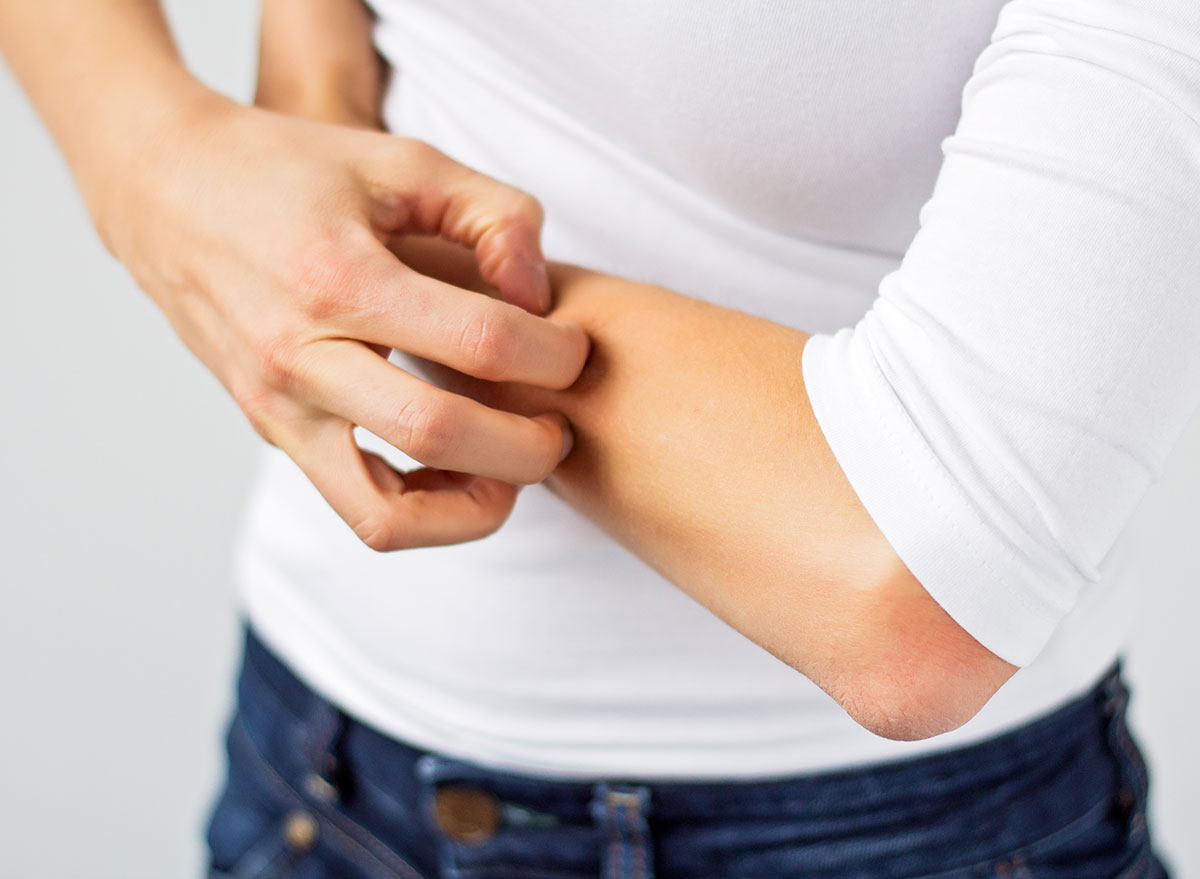
This may signify your diet is: Too high in animal protein
What's red, rough, and itchy all over? A patch of eczema, but don't let this skin condition linger around for long. Kick it to the curb with a couple diet hacks. First, let's clear up a common misconception: you might have heard that cutting sugar-heavy foods is key to eczema relief, but while you should limit your intake of the sweet stuff for other reasons, a study in Acta Dermato-Venereologica found that sugar didn't aggravate eczema after all. So if you're going to cut back on sugar, do it to lower your risk of diabetes and obesity, not to save your skin.
It might be a better idea to see what happens when you listen to Susan Tucker, holistic nutritionist and founder of Green Beat Life, who recommends giving vegetarianism a try. "Many find that their eczema clears up when they give up meat," she says. Give this a go, stock up on some of the 25 Healthy Foods That Give You Glowing Skin, and let your smooth cheeks thank you for themselves.
